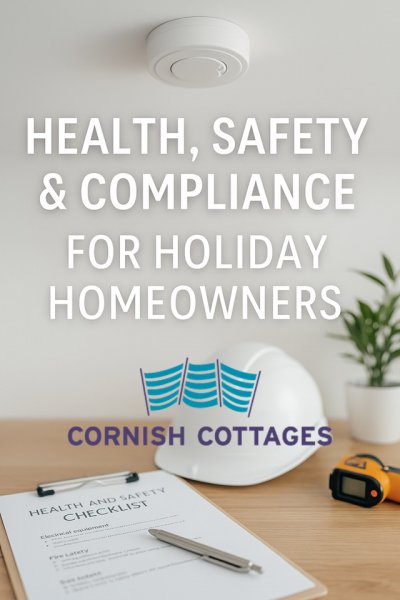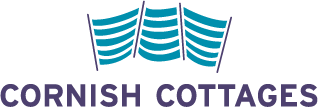Health, Safety & Compliance for Holiday Homeowners
Letting your holiday home can be a rewarding way to generate income — but it also comes with clear responsibilities. When guests pay to stay in your property, you take on a duty of care to ensure their safety. Some requirements are legal obligations, others are best practice, but all are essential to protecting both your guests and your investment.
Here’s a practical guide to the key safety measures every holiday home should have in place.
Essential Documentation & Safety Checks
Public Liability Insurance
In addition to your standard buildings and contents cover, you must have Public Liability Insurance — usually with at least £2 million of cover — to protect against claims for guest injury or third-party property damage.
Gas & Oil Safety
Gas appliances must be checked annually by a Gas Safe registered engineer, and a valid Gas Safety Certificate provided. If you have an oil boiler, arrange a yearly service and keep records. Carbon monoxide alarms should be installed where required and tested regularly.
Electrical Safety
An Electrical Installation Condition Report (EICR) is required every five years to assess the safety of your fixed wiring. Portable Appliance Testing (PAT) is recommended annually for items guests can plug in, even if new appliances are technically exempt — at around £1 per item, it’s often easiest to test everything in one visit.
Fire Safety
A Fire Risk Assessment is essential and should ideally be reviewed annually. Smoke and heat alarms must be tested and logged at every changeover, and all fire safety equipment serviced once a year.
By law, a smoke detector must be installed in every bedroom, as well as on each storey of the property. These should be interlinked where possible, so if one sounds, they all do — giving guests maximum warning.
Heating & Solid Fuel Appliances
If your property has a log burner, open fire, or unvented hot water system, arrange annual servicing and chimney sweeping. Check carbon monoxide alarms at the same time.
Hot Tubs
If you provide a hot tub, it must comply with the HSG282 guidelines for water treatment, filtration and guest safety. This includes strict cleaning and monitoring procedures.
Legionella Risk
If a property has been empty for a prolonged period (even just a few weeks in warm weather), stagnant water in the system can increase the risk of Legionella bacteria. Before reopening to guests, flush through the system with clean water and consider a formal Legionella risk assessment — especially if you are starting to let after a period of vacancy.
Common Mistakes to Avoid
- Letting insurance lapse or assuming home insurance covers holiday letting — it often doesn’t.
- Skipping changeover checks — especially for smoke and carbon monoxide alarms.
- Not keeping records of servicing, testing and inspections — essential if there’s ever an incident.
- Assuming caretakers will handle compliance — the legal responsibility rests with the property owner.
- Forgetting about seasonal closures — even short periods of vacancy may require extra checks before guests arrive.
Peace of Mind With Local Support
At Cornish Cottages Ltd, we know compliance can feel overwhelming, especially for new holiday home owners. As an independent, Cornwall-based agency, we’re here to help you navigate these requirements — from recommending trusted local contractors to providing practical guidance on safety best practice.
When you let with us, you’re not just listing your property — you’re gaining a partner who understands both the local market and the responsibilities that come with welcoming guests.
Thinking of Letting? Let’s Talk.
If you own a holiday home in Cornwall and want friendly, expert advice on getting started — or switching from your current agent — we’d be delighted to help. No pressure, no hard sell, just honest guidance from people who care about Cornwall and its homes.
Get in touch with our local team today for a no-pressure chat.
📞 01326 240 333
✉ Enquiries@CornishCottages.co.uk


